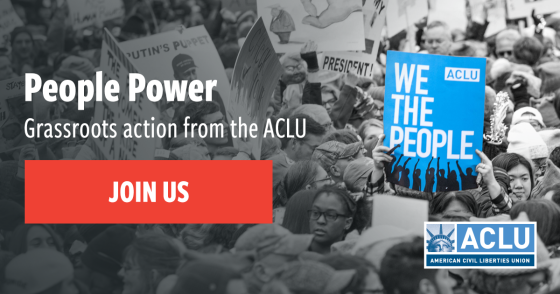by Rose Godinez, legal and policy counsel for ACLU of Nebraska
The ACLU of Nebraska's recent report From the Classroom to the Courtroom: A Review of Nebraska’s School Police Programs details school police programs across Nebraska and analyzes their impact on students’ civil rights and civil liberties. Our analysis was in response to intakes received by our office, recent local and national media and policy reports about the establishment or expansion of school police programs, an increased focus on school safety in the wake of tragedies, and an increased awareness about the devastating impacts of the school to prison pipeline.
Our findings make it clear that Nebraska schools that do employ school police must implement training and program requirements detailed in LB390 to protect both students' civil rights and parents' rights. We thank Sen. Patty Pansing Brooks for introducing and prioritizing this critical legislation.
In recent years, school safety concerns have led more and more schools to implement or expand programs that establish a permanent police presence in our schools. This national trend is mirrored in Nebraska. While perhaps well-intentioned, this trend risks significant negative consequences for the civil rights and civil liberties of all students but particularly youth of color, youth with disabilities, immigrant youth, and youth who identify as LGBTQ+. School police programs have a significant disproportionate impact on diverse communities.
An increased police presence in schools leads to more system involvement via juvenile or criminal court. The same misconduct that would previously land a student in the principal’s office may today land them in front of a judge and come with lifelong collateral consequences negatively impacting their educational opportunities, job prospects, housing, voting rights, and ability to receive public benefits.
The ACLU does not support a permanent police presence in schools. However, we recognize the growing trend of establishing or expanding school police programs in Nebraska and undertook an extensive research project to gain a more complete understanding of the policies and practices guiding these programs among the public-school districts and law enforcement agencies. In the summer and fall of 2018, the ACLU utilized two extensive rounds of open records requests, conducted extensive legal and policy research, conducted a story banking project and published a report in December 2018 further explore how these programs currently operate and whether they are meeting established best practices to safeguard the civil rights and civil liberties of our students.
Below are a few key findings:
- There is no standard state-based data collection to track the reasons students are referred to law enforcement disaggregated by demographic information of the student like race, gender, gender identity, LGBTQ+ status, English Language Learner (ELL) status, and disability status. Only a small number of school districts, and only some law enforcement agencies, track this information.
- For school districts and law enforcement agencies that do track reasons for referrals, the vast majority fail to provide critical details to contextualize the incident and do not document the referral outcome.
- From the limited data that could be gathered on reasons students are referred to school police, the reasons most often cited were: 1) assault, 2) drug-related offenses, and 3) disturbance. Additionally, high school students made up nearly half of all the referrals from K-12 schools that documented referral reasons.
- There are no standard provisions that must be part of a Memorandum of Understanding (MOU) or similar agreement between a school district and a law enforcement agency governing school police programs and many MOUs governing Nebraska school police programs lack critical provisions to safeguard students’ rights.
- There are no standard, minimum, or specific training requirements for school police in Nebraska public schools, even though the majority of law enforcement agencies that contract with school districts have their school police participate in some youth-centered specialized training.
- School districts have widely divergent practices in notifying and obtaining permission from a parent or guardian before a student is contacted or interrogated by school police. In fact, half of the school districts don’t require a parent to be notified when their student is questioned about an incident at school; yet this questioning could result in a court case filed against the student.
- Less than half of the law enforcement agencies that participate in school police programs have a policy, even an informal policy, on advising students of their rights against unlawful searches and seizures.
- More than three quarters of law enforcement agencies have a procedure or policy to advise students of their rights against self-incrimination and rights to legal counsel. These are primarily given through Miranda warnings at the point of arrest. In far too many instances, it remains unclear if or how students are Mirandized when interrogated by school staff with a police officer present or by police officers with a school staff member present.
We must continue to ask the hard questions about the utility and efficacy of these programs at the local, state, and federal levels. Additionally, at the very least, we must ensure that school police programs operate with appropriate safeguards and standards that protect students’ and parents’ civil rights and civil liberties while taking every opportunity to mitigate the pernicious impacts of the school-to-prison-pipeline for all students and particularly for students of color and students with disabilities. Passing LB390 is an important start. We must expand our efforts to empower students and parents to know and understand their rights to combat these suspect policies and practices on the individual level.
